Fleurs du Mal Magazine


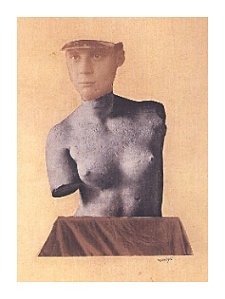
Johannes Theodor Baargeld
(1892-1927)
Armada Duldgedalzen
(sie ist Mitglied der Z/w 3)
Der erste Schmerz der Litfassäule war kein Kind
Jedoch der zweite war eins stand neben ihr und hiess
Armada Duldgedalzen ozeanisches
Drittmädchen und Prinzé – sin
Von Haar zu Haar hing ihr
Die Augenpracht schon damals so sehr fertig dass
Die Litfasshunde von hinten bellten Ueber Kopf
Besprangen sie die Erstgeburt Armada Duldgedalzen Doch
Vergebens sie besprangen sich nur selber
Mittlerweilen zeigten sich die ersten
Einhundertsiebenundzwanzig linken Ohre die die
Kluge Magd Orella
(von Ohr) Orella Muschelsilben nannte
Orella Muschelsilben war der Efeu ihres
Heiligtums bevor und nachdem
Sie sich ein Volk gewünscht Nur
Rechts sollte sie bloss bleiben ein
Einzig rechtes Ohr bald seltsam bald
Natürliches Rasierbecken ihrer Schnecken
Schaukelte es dann den Schaum
Bedürfnismäßig über Stab und Hörnchen
Denn man entschloss sich ja ihren
Leib aus den Tränenzapfen Martin Luthers
Zu kleben und schwedischen Zündhölzern
Und zwar nie Kopf auf Kropf auf die beliebte
Art des Erfinders O Armada Duldgedalzen
Sollst je du sollst du Schwänin auf dem Ozean
(1920)
Johannes Theodor Baargeld poetry
fleursdumal.nl magazine
More in: Archive A-B, Baargeld, Johannes Theodor
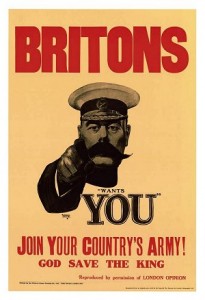
John Jarmain
(1911 – 1944)
El Alamein
There are flowers now, they say, at Alamein;
Yes, flowers in the minefields now.
So those that come to view that vacant scene,
Where death remains and agony has been
Will find the lilies grow –
Flowers, and nothing that we know.
So they rang the bells for us and Alamein,
Bells which we could not hear:
And to those that heard the bells what could it mean,
That name of loss and pride, El Alamein?
– Not the murk and harm of war,
But their hope, their own warm prayer.
It will become a staid historic name,
That crazy sea of sand!
Like Troy or Agincourt its single fame
Will be the garland for our brow, our claim,
On us a fleck of glory to the end:
And there our dead will keep their holy ground.
But this is not the place that we recall,
The crowded desert crossed with foaming tracks,
The one blotched building, lacking half a wall,
The grey-faced men, sand powdered over all;
The tanks, the guns, the trucks,
The black, dark-smoking wrecks.
So be it: none but us has known that land:
El Alamein will still be only ours
And those ten days of chaos in the sand.
Others will come who cannot understand,
Will halt beside the rusty minefield wires
And find there – flowers.
Mareth, Tunisia. March, 1943
John Jarmain poetry
fleursdumal.nl magazine
More in: Archive I-J, Jarmain, John
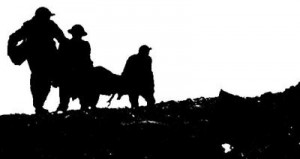
Georg Trakl
(1887 – 1914)
Grodek
Am Abend tönen die herbstlichen Wälder
Von tödlichen Waffen, die goldnen Ebenen
Und blauen Seen, darüber die Sonne
Düster hinrollt; umfängt die Nacht
Sterbende Krieger, die wilde Klage
Ihrer zerbrochenen Münder.
Doch stille sammelt im Weidengrund
Rotes Gewölk, darin ein zürnender Gott wohnt,
Das vergossne Blut sich, mondne Kühle;
Alle Straßen münden in schwarze Verwesung.
Unter goldnem Gezweig der Nacht und Sternen
Es schwankt der Schwester Schatten durch den schweigenden Hain,
Zu grüßen die Geister der Helden, die blutenden Häupter;
Und leise tönen im Rohr die dunkeln Flöten des Herbstes.
O stolzere Trauer! ihr ehernen Altäre,
Die heiße Flamme des Geistes nährt heute ein gewaltiger Schmerz,
Die ungebornen Enkel.
Georg Trakl poetry
fleursdumal.nl magazine
More in: Archive S-T, Trakl, Georg, Trakl, Georg
Julian Grenfell
(1888 – 1915)
INTO BATTLE
The naked earth is warm with spring,
And with green grass and bursting trees
Leans to the sun’s gaze glorying,
And quivers in the sunny breeze;
And life is colour and warmth and light,
And a striving evermore for these;
And he is dead who will not fight;
And who dies fighting has increase.
The fighting man shall from the sun
Take warmth, and life from the glowing earth;
Speed with the light-foot winds to run,
And with the trees to newer birth;
And find, when fighting shall be done,
Great rest and fullness after dearth.
All the bright company of Heaven
Hold him in their high comradeship,
The Dog-Star, and the Sisters Seven,
Orion’s Belt and sworded hip.
The woodland trees that stand together,
They stand to him each one a friend;
They gently speak in the windy weather;
They guide to valley and ridge’s end.
The kestrel hovering by day,
And the little owls that call by night,
Bid him be swift and keen as they,
As keen of ear, as swift of sight.
The blackbird sings to him, ‘Brother, brother,
If this be the last song you shall sing,
Sing well, for you may not sing another;
Brother, sing.’
In dreary, doubtful, waiting hours,
Before the brazen frenzy starts,
The horses show him nobler powers;
O patient eyes, courageous hearts!
And when the burning moment breaks,
And all things else are out of mind,
And only Joy of Battle takes
Him by the throat, and makes him blind,
Through joy and blindness he shall know,
Not caring much to know, that still
Nor lead nor steel shall reach him, so
That it be not the Destined Will.
The thundering line of battle stands,
And in the air Death moan and sings;
But Day shall clasp him with strong hands,
And Night shall fold him in soft wings.
Julian Grenfell poetry
fleursdumal.nl magazine
More in: Archive G-H, Greenfel, Julian

Met tegenzin maakte hij zich los uit de ranzige lucht van de stallen en liep het erf op, met doorzakkende knieën. Droeg bussen melk naar de straatkant en joeg de koeien de stal uit. Ook de beesten leken er weinig voor te voelen om buiten te komen. Ze bleven liever hokken in de zure lucht van stront en kaas, met in hun dikke koppen de dromen van meer gras en minder melk. Maar de boer kende de gevoelens van de koeien niet en sloeg met een knuppel op hen in. Ze sprongen de poort uit en draafden onder klaaglijk geloei het plein op, gras en klaver martelend met hun grove hoeven. Het lawaai van de koeien bracht de alledaagsheid terug op het plein, waardoor Kaffa tot zichzelf kwam en de mist uit zijn kop verdween.
Hij was verbaasd over de toestand waarin hij zichzelf aantrof. Was er niet eens meer zeker van of hij het kind echt had horen schreeuwen. Van het ene op het andere moment eisten de koeien zijn aandacht op. Hij veegde de tranen van zijn gezicht, vergat zelfs Céleste, holde naar de beesten en pompte de drinkgoot vol water. Hij schreeuwde vrolijk tegen de koeien, blij als hij was dat hij hen na een lange nacht terugzag. Zo dom als ze waren, leken de beesten de slagen alweer vergeten. Ze zopen hun pensen zo barstensvol dat het water door hun neusgaten naar buiten liep. En ze zeikten onophoudelijk. De grond rond de pomp, in zijn bed van blauw graniet, was zo door zeik verzuurd dat er geen gras of klaver meer wilde groeien.
Voor de rest liet het groen zich door niets weerhouden om dicht en kleurig over de rest van het plein te golven, tot in de caféhof en de kerktuin toe. Hier en daar overwoekerd door boterbloemen en weegbree, klaver en dovenetels. Soms kale stukken waar de dorpelingen hun spelletjes deden, zoals landverbeuren. Nadat de koeien hadden gezopen, keerden ze zich van de drinkbak af en werden door de boer naar het weiland gedreven.
Kaffa liep terug naar zijn plaats onder de meidoorn. Hij zag dat Céleste naar hem keek vanuit de deuropening van de kroeg. Hij zwaaide naar haar, om haar te laten zien dat alles met hem weer in orde was. De mooie ochtend deed hem goed. Hij riep de vogels bij de namen die hij hun ooit gegeven had. Ze herkenden hem, de kraai Jessie, de merel Rosa en het hele zootje duiven en mussen. Ze kwamen op zijn schouders zitten en pikten in zijn haren. Bij hem voelden ze zich veilig voor de buizerd in de meidoorn en voor de eksters die vanuit alle hoeken van het plein naar hen loerden. Ze kwamen met zovelen op hem af dat hij in een haag van vogels rond het plein wiekte, alsof hij zelf vleugels had gekregen. Hij voerde de duiven handenvol graan dat hij in een schuur had gejat. Gooide de merel en de lijsters wormen toe die hij in de klei langs de rivier had uitgespit en in een tabaksblik bewaarde. De vogels lieten hem pas met rust toen ze hem helemaal hadden leeggeplunderd.
Ton van Reen: Landverbeuren (05)
wordt vervolgd
fleursdumal.nl magazine
More in: - Landverbeuren, Reen, Ton van

The Sorrows of Young Werther (63) by J.W. von Goethe
“The grief of all arose, but most the bursting sigh of Armin. He
remembers the death of his son, who fell in the days of his youth.
Carmor was near the hero, the chief of the echoing Galmal. Why burst the
sigh of Armin? he said. Is there a cause to mourn? The song comes with
its music to melt and please the soul. It is like soft mist that, rising
from a lake, pours on the silent vale; the green flowers are filled with
dew, but the sun returns in his strength, and the mist is gone. Why art
thou sad, O Armin, chief of sea-surrounded Gorma?
“Sad I am! nor small is my cause of woe! Carmor, thou hast lost no son;
thou hast lost no daughter of beauty. Colgar the valiant lives, and
Annira, fairest maid. The boughs of thy house ascend, O Carmor! but
Armin is the last of his race. Dark is thy bed, O Daura! deep thy sleep
in the tomb! When shalt thou wake with thy songs? with all thy voice of
music?
“Arise, winds of autumn, arise: blow along the heath. Streams of the
mountains, roar; roar, tempests in the groves of my oaks! Walk through
broken clouds, O moon! show thy pale face at intervals; bring to my mind
the night when all my children fell, when Arindal the mighty fell–when
Daura the lovely failed. Daura, my daughter, thou wert fair, fair as
the moon on Fura, white as the driven snow, sweet as the breathing gale.
Arindal, thy bow was strong, thy spear was swift on the field, thy look
was like mist on the wave, thy shield a red cloud in a storm! Armar,
renowned in war, came and sought Daura’s love. He was not long refused:
fair was the hope of their friends.
“Erath, son of Odgal, repined: his brother had been slain by Armar. He
came disguised like a son of the sea: fair was his cliff on the wave,
white his locks of age, calm his serious brow. Fairest of women, he
said, lovely daughter of Armin! a rock not distant in the sea bears
a tree on its side; red shines the fruit afar. There Armar waits for
Daura. I come to carry his love! she went she called on Armar. Nought
answered, but the son of the rock. Armar, my love, my love! why
tormentest thou me with fear? Hear, son of Arnart, hear! it is Daura who
calleth thee. Erath, the traitor, fled laughing to the land. She lifted
up her voice–she called for her brother and her father. Arindal! Armin!
none to relieve you, Daura.
“Her voice came over the sea. Arindal, my son, descended from the hill,
rough in the spoils of the chase. His arrows rattled by his side; his
bow was in his hand, five dark-gray dogs attended his steps. He saw
fierce Erath on the shore; he seized and bound him to an oak. Thick wind
the thongs of the hide around his limbs; he loads the winds with his
groans. Arindal ascends the deep in his boat to bring Daura to land.
Armar came in his wrath, and let fly the gray-feathered shaft. It sung,
it sunk in thy heart, O Arindal, my son! for Erath the traitor thou
diest. The oar is stopped at once: he panted on the rock, and expired.
What is thy grief, O Daura, when round thy feet is poured thy brother’s
blood. The boat is broken in twain. Armar plunges into the sea to rescue
his Daura, or die. Sudden a blast from a hill came over the waves; he
sank, and he rose no more.
“Alone, on the sea-beat rock, my daughter was heard to complain;
frequent and loud were her cries. What could her father do? All night I
stood on the shore: I saw her by the faint beam of the moon. All night
I heard her cries. Loud was the wind; the rain beat hard on the hill.
Before morning appeared, her voice was weak; it died away like the
evening breeze among the grass of the rocks. Spent with grief, she
expired, and left thee, Armin, alone. Gone is my strength in war, fallen
my pride among women. When the storms aloft arise, when the north lifts
the wave on high, I sit by the sounding shore, and look on the fatal
rock.
“Often by the setting moon I see the ghosts of my children; half
viewless they walk in mournful conference together.”
The Sorrows of Young Werther (Die Leiden des jungen Werther) by J.W. von Goethe. Translated by R.D. Boylan.
To be continued
fleursdumal.nl magazine
More in: -Die Leiden des jungen Werther, Goethe, Johann Wolfgang von
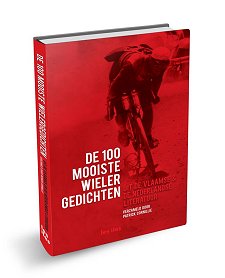 Patrick Cornillie
Patrick Cornillie
De 100 mooiste wielergedichten uit de Vlaamse en de Nederlandse literatuur
100 fiets- en wielergedichten. Van vroeger tot vandaag, van jongensdroom tot laatste finish, van voorjaarsklassiekers en de Tour tot veldrit- en zesdaagseseizoen, voor het eerst verzameld in een bloemlezing. 100 fiets- en wielergedichten. Van Miel Vanstreels, Willie Verhegghe, Paul Rigolle en Jan Kal en natuurlijk. Maar ook dankzij Levi Weemoedt, Tom Lanoye, Gerrit Komrij, Rick de Leeuw, Luuk Grewez, Victor Vroomkoning, Freek de Jonge, Sylvie Marie, Roel Richelieu, Van Londersele en vele anderen fiets je in dit boek over ‘les voies sacrees’ en langs de ‘bedevaartsoorden’ van de wielersport.
Samensteller: Patrick Cornillie • 144 pgs • 17,95 euro
Isbn: 978.94.9154.513.9 – Uitgeverij Les Iles
fleursdumal.nl magazine
More in: - Book News, Art & Literature News, Literary Events
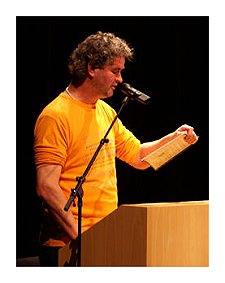
Uitgeverij Hoenderbossche Verzen nodigt u van harte uit voor de presentatie van Een Wak in de Werkelijkheid de nieuwe dichtbundel van Maarten van den Elzen. Deze elfde dichtbundel van Maarten van den Elzen is door Genoveef Lukassen geheel in zeefdruk uitgevoerd, zij zorgt zoals gewoonlijk ook voor de grafische vormgeving.
‘Een Wak in de Werkelijkheid’ kent twee presentaties.
Op 9 oktober 2014 werd de dichtbundel gepresenteerd in Uden.
De tweede presentatie vindt plaats op zaterdag 25 oktober 2014 tussen 15.00 – 17.00 uur in de Nijmeegse Stadsbibliotheek, in het Poëziecentrum Nederland (van Wim van Til).
In Nijmegen zijn het Ton Verbeeten (journalist/publicist) en filosoof/publicist Charles Vergeer die een (feest)rede afsteken en wordt u verrast door het optreden van een aantal dichters.
De geheel in zeefdruk uitgevoerde dichtbundel ‘Een Wak in de Werkelijkheid” bevat een dertigtal gedichten, een voorwoord van Charles Vergeer en beeldend werk van Genoveef Lukassen.
Tijdens de presentaties kost de bundel € 35,– (Winkelwaard € 42,50).
In Nijmegen bestaat de mogelijkheid uw dichtbundel(s) te laten signeren.
Uitgeverij Hoenderbossche Verzen
Patrijsweg 3
5406 NG Uden
0413 269366
www.hoenderbosch.nl
hoenderbossche.dingenmakers@wxs.nl
Poëziecentrum
Nederland
Mariënburg 29
6511 PS Nijmegen
06-53856040
Maarten van der Elzen: Een Wak in de Werkelijkheid
fleursdumal.nl magazine
More in: - Book News, Art & Literature News, Elzen, Maarten van den
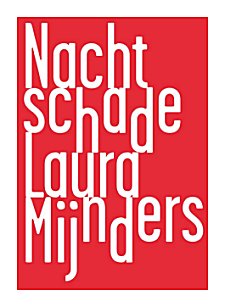
Zondag 26 oktober in Linnaeus Boekhandel in Amsterdam:
Een middag eigentijdse poëzie
met Arthur Lava, Andrea Voigt, Willem van Zadelhoff, Freda Kamphuis en Laura Mijnders
Vijf dichters met een nieuwe bundel bij Uitgeverij Voetnoot.
De dichters introduceren en bevragen elkaar.
Ook dragen ze voor. En hoe!
Adres: Middenweg 29, Amsterdam. Inloop: vanaf 14.30 uur. Aanvang: 15.00 uur.
Toegang: € 5,-. Reserveren via e-mail (info@linnaeusboekhandel.nl),
telefoon (020-4687192) of in de winkel.
Een feest van jewelste – Arthur Lava
Arthur Lava jut ons op om het leven te vieren, het ondenkbare uit te dagen en het beste in onszelf naar boven te halen. Zijn gedichten zijn uitbundig, goed te begrijpen en soms erg geestig. Ze staan vol pakkende regels.
Arthur Lava: “Een walk on the wild side is voor mij wel een echt feest. Een ruig schrijversleven. Jammer genoeg zit daar een levensbekortende kant aan. Bij die gedachte schroef ik de dop toch weer terug op de fles.”
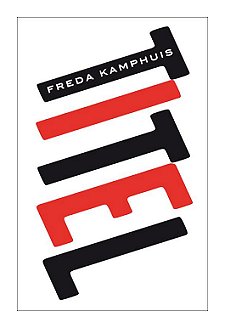 Plankvrouw – Andrea Voigt
Plankvrouw – Andrea Voigt
Andrea Voigt schetst met rake, herkenbare typeringen en met humor een beeld van een dappere, zelfstandige en tegelijkertijd onzekere vrouw. Voor vrouwen is deze bundel ongetwijfeld een feest van herkenning, mannen zullen verrast zijn door dit openhartige kijkje in de ziel van Plankvrouw.
Andrea Voigt: “Plankvrouw is niet buigzaam. Ze is ónbuigzaam. […] Niet iedereen kan Plankvrouw zijn.”
Het ei van Fabergé – Willem van Zadelhoff
Gedichten over wat er is en wat er was, over onthouden en vergeten. Het is poëzie met de sfeer van grofkorrelige foto’s, net scherp genoeg om te zien wat erop staat en vaag genoeg om de verbeelding haar eigen gang te laten gaan.
Willem van Zadelhoff: “Geheugen speelt een rol in mijn poëzie. In een van mijn gedichten laat ik rupsen tegen de muur op kruipen. Dat deed ik vroeger met een vriendje; we bewaarden die beestjes in luciferdoosjes en hielden dan het wereldkampioenschap ‘rupsenkruipen’.”
Titel – Freda Kamphuis
Freda Kamphuis lapt heel wat regels aan haar laars, onder meer door vorm en inhoud op volstrekt eigenzinnige wijze te combineren. Die kruisbestuiving komt overal in haar bundel terug, om te beginnen in de titel, die Titel luidt. Freda Kamphuis: “Mijn hoofd kan zeker als een speeltuin voelen, maar ook als een spookhuis. En alles daar tussenin.”
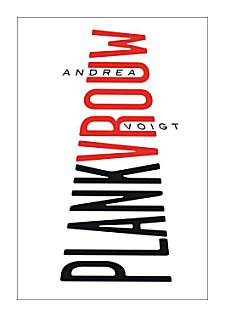 Nachtschade – Laura Mijnders
Nachtschade – Laura Mijnders
De poëzie van de jonge dichteres Laura Mijnders is opvallend doorleefd. Hoewel ze persoonlijke ervaringen en observaties door haar poëzie heen vlecht, blijven haar gedichten zeker niet beperkt tot haar eigen belevingswereld.
Laura Mijnders: “Ik denk dat ik in mijn gedichten een beroep doe op de laatjes die in mijn leven en dat van anderen veelal ongeopend bleven. Schuldgevoelens, het geweten, woede. In mijn werk, op het papier, mag het allemaal vrij zijn.”
De citaten komen uit de Voetnootkrant van najaar 2014, waarin Andrea Voigt de dichters interviewt. Frits Pijlsnijder interviewde Andrea Voigt.
fleursdumal.nl magazine
More in: - Book News, Art & Literature News, Kamphuis, Freda

Alun Lewis
(1915 – 1944)
ALL DAY IT HAS RAINED
All day it has rained, and we on the edge of the moors
Have sprawled in our bell-tents, moody and dull as boors,
Groundsheets and blankets spread on the muddy ground
And from the first grey wakening we have found
No refuge from the skirmishing fine rain
And the wind that made the canvas heave and flap
And the taut wet guy-ropes ravel out and snap,
All day the rain has glided, wave and mist and dream,
Drenching the gorse and heather, a gossamer stream
Too light to stir the acorns that suddenly
Snatched from their cups by the wild south-westerly
Pattered against the tent and our upturned dreaming faces.
And we stretched out, unbuttoning our braces,
Smoking a Woodbine, darning dirty socks,
Reading the Sunday papers – I saw a fox
And mentioned it in the note I scribbled home;
And we talked of girls and dropping bombs on Rome,
And thought of the quiet dead and the loud celebrities
Exhorting us to slaughter, and the herded refugees;
-Yet thought softly, morosely of them, and as indifferently
As of ourselves or those whom we
For years have loved, and will again
Tomorrow maybe love; but now it is the rain
Possesses us entirely, the twilight and the rain.
And I can remember nothing dearer or more to my heart
Than the children I watched in the woods on Saturday
Shaking down burning chestnuts for the schoolyard’s merry play
Or the shaggy patient dog who followed me
By Sheet and Steep and up the wooded scree
To the Shoulder o’ Mutton where Edward Thomas brooded long
On death and beauty – till a bullet stopped his song.
Alun Lewis poetry
fleursdumal.nl magazine
More in: Archive K-L, Lewis, Alun
Martin
Beversluis
Langgewenste dagen van onmacht
De weemoed komt en gaat
met de jaargetijden dan is
zij teleurgesteld dat uit
één zaadje maar één radijsje
groeien kan bang dat het
altijd een ander zal zijn
bij wie ze wegdroomt
iemand die ze net niet
kan zien langgewenste
dagen van onmacht simpele ogen
het luchtkasteel gemakeld met die
vastgoedmagneten zij heeft nog
nooit zoveel gedownload als
sinds het is verboden
laatst nog probeerde zij leven
te downloaden en kreeg de
waarschuwing dat het
uitvoeren van dit programma
tot onverwachte resultaten
kan leiden
ze stopt dat ene zaadje
in de grond
hoopt
dat het dit keer
een bos wordt.
Martin Beversluis
fleursdumal.nl magazine
More in: Archive A-B, Beversluis, Martin
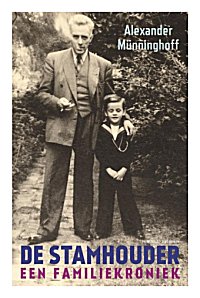
Alexander Münninghoff (Pozna, 1944) is journalist en Ruslandkenner.
Zijn nieuwste boek De stamhouder is autobiografisch en berust op feiten en familieverhalen.
Ook te gast is Mark Schaevers ( 1956), journalist, over zijn pas verschenen boek Orgelman.
Orgelman is de indrukwekkende biografie over het leven van de schilder Felix Nussbaum (1904-1944).
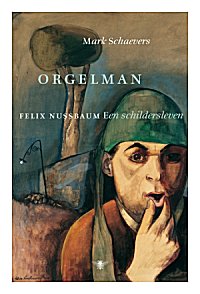 Alexander Münninghoff
Alexander Münninghoff
& Mark Schaevers
VPRO Boeken –
zondag 19 oktober 2014
NPO 1, 11.20 uur
Alexander Münninghoff: De stamhouder
Mark Schaevers: Orgelman
# Website VPRO BOEKEN
fleursdumal.nl magazine
More in: - Book News, Art & Literature News
Thank you for reading Fleurs du Mal - magazine for art & literature